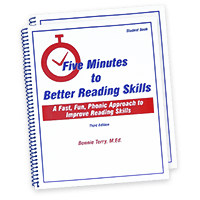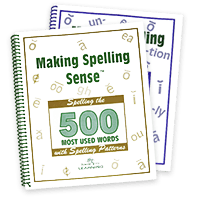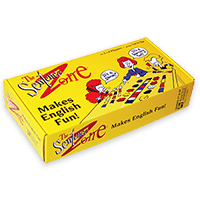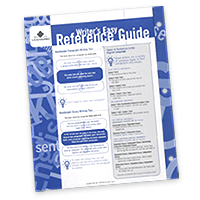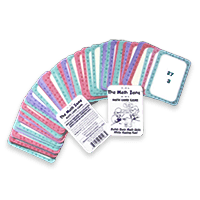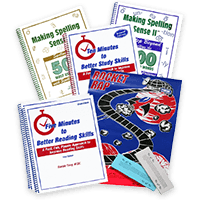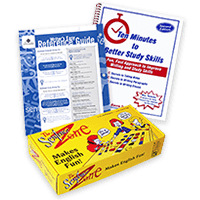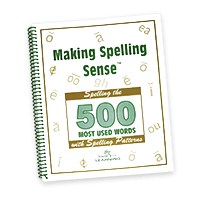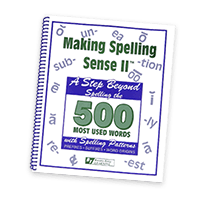Phonemic Awareness Activities Improve Reading Skills
March 22nd, 2018[vc_row][vc_column][vc_column_text]Phonemic awareness is a foundational skill that impacts one’s ability to read. 7 of the 9 areas of auditory processing directly impact phonemic awareness. This is because phonemic awareness is the ability to understand sound structure. For example, what are the individual sounds you hear in the word ‘cat’? Do you even hear three individual sounds?
And, adding in the alphabetic principle, can you say the names of the letters that those sounds are represented by? This is not a natural process! We typically hear a word or a word part, but we don’t think in terms of the different sounds that are combined to make the word.
Noticing sounds in the world is the beginning of phonemic awareness. This is the ability to hear, identify, and manipulate individual sounds in spoken words. As time goes on, this awareness is used in the process of sounding out words.[/vc_column_text][/vc_column][/vc_row][vc_row][vc_column][video_item youtube_video=”true” aspect_ratio=”aspect_16_9″ title=”Phonemic Awareness” description=”What is Phonemic Awareness? A few quick tips to help improve your students’ phonemic awareness skills.” author=”Bonnie Terry” publisher=”Bonnie Terry Learning” link=”https://www.youtube.com/embed/CirCikmnqTY” poster=”11466″ video_unique_id=”phonemic_awareness”][/vc_column][/vc_row][vc_row][vc_column width=”2/3″][vc_column_text]
Important Points about Phonemic Awareness
- Phonemic awareness can be taught and learned.
- This combination of auditory processing skills helps students learn to read and spell.
- The relationship between this awareness and learning to read and spell is reciprocal: having phonemic awareness helps children learn to read and spell; learning to read and spell words by working with letter-sound relationships improves children’s phonemic awareness.
Again, this is the child’s recognition of sounds and word parts. The word /balloon/ has two-word parts (syllables).
Phonemic Awareness Activities
Those that struggle with reading can all benefit from the following activities. These activities can be done at any age, not just in the pre-school to kindergarten stages.[/vc_column_text][/vc_column][vc_column width=”1/3″][vc_single_image image=”11320″ img_size=”full”][/vc_column][/vc_row][vc_row][vc_column][vc_column_text]
Clapping Pattern Activities
Clapping a pattern helps with pattern recognition which is a precursor to hearing individual word parts as well as individual sounds. The teacher or parent does a clapping pattern and the student repeats it. Then, you can designate a student to do a clapping pattern and you repeat it. Have the student let you know if you got their pattern right.
- Clap, pause, clap
- Clap, clap, pause, clap
- Clap, clap, clap, pause, clap, clap
- Clap, clap, pause, clap, clap, clap
- Slow and fast clapping
Clap/Count the Words in a Sentence
- Use nursery rhymes and count the words in a phrase (e.g.: Jack and Jill went up the hill = 7 words; to fetch a pail of water = 6 words; Jack fell down and broke his crown = 7 words; Jill came tumbling after = 4 words)
- Repeat a sentence, count the words (e.g.: Pizza is my favorite food. = 5 words; I like playing ball in the yard. = 7 words; My dad is a fireman. = 5 words)
Clapping Names
- Clap the syllables in their first name (e.g.: Tom – 1 clap; Terry – 2 claps; Marilyn – 3 claps)
- Clap the syllables in their last names
- Clap the syllables of their first and last names together
Rhyming Words
The ability to rhyme words is a finer point of phonemic awareness. This helps in the ability to hear individual word parts and how different words share the same phonemes.
Always give an example: The teacher or parent leads with “Let’s think of words that rhyme with cat…bat, fat, what other words can you think of?”
- Think of words that rhyme with at, it, an, ant, id
- Think of words that rhyme with other, lotion, bound
For more phonemic awareness activities, check out Making Spelling Sense and Scholar Within’s Reading Program. These products and programs improve phonemic awareness as well as 23 to 27 areas of perception.[/vc_column_text][/vc_column][/vc_row][vc_row][vc_column width=”1/4″][vc_single_image image=”8183″ img_size=”medium”][/vc_column][vc_column width=”3/4″][vc_column_text]Bonnie Terry, M. Ed., BCET is internationally recognized as America’s Leading Learning Specialist. She is an award winning author and learning disability specialist and board certified educational therapist.
Best Selling Author: Family Strategies for ADHD Kids, School Strategies for ADHD Kids, Five Minutes to Better Reading Skills, Ten Minutes to Better Writing and Study Skills, and The Sentence Zone Game.[/vc_column_text][/vc_column][/vc_row]









